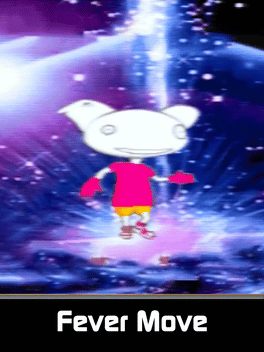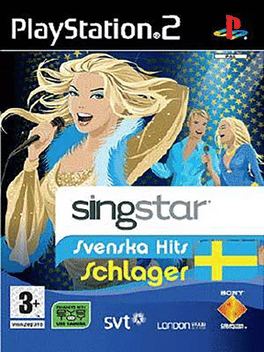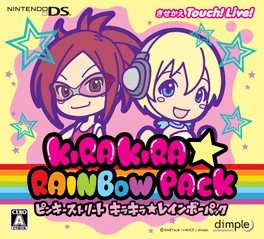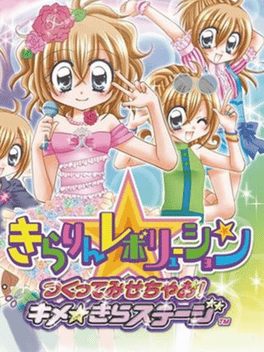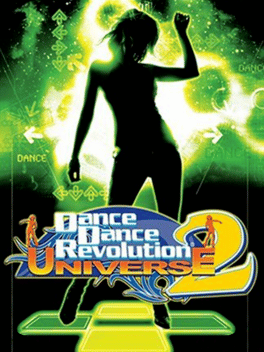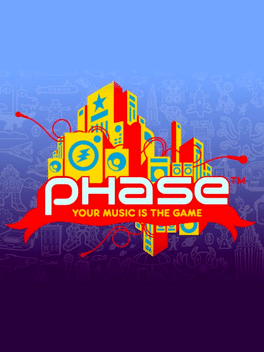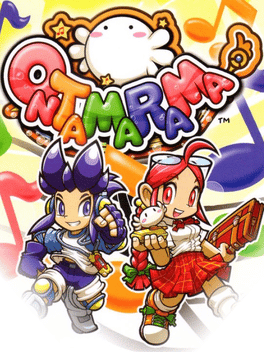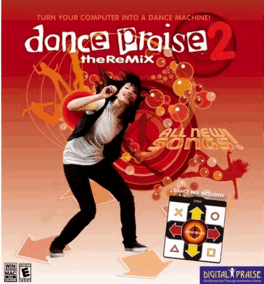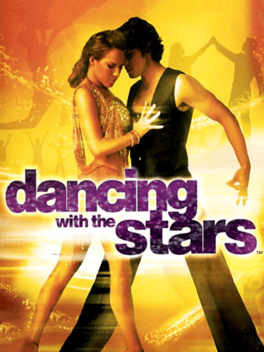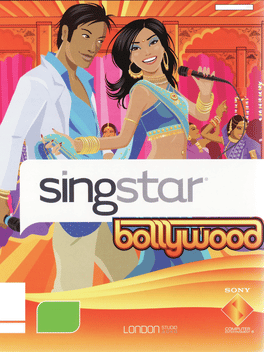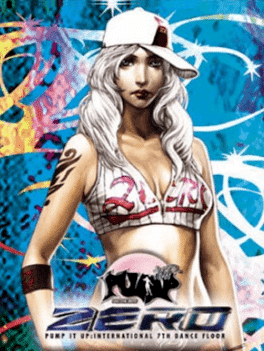New Music Games - Page 63
-
Fever Move
2007
Fever Move
2007
A basic rhythm game with multiple songs. The gameplay consists of notes at the bottom of the screen scrolling to the left to a hit area, and the player has to hit the notes when they reach that area. -
SingStar: Die Toten Hosen
2007
In time for the band's 25th anniversary, legendary German punk rockers Die Toten Hosen get their own edition of Sony's popular karaoke series. -
Singstar: Svenska Hits Schlager
2007
SingStar: Svenska Hits Schlager is a karaoke game featuring 30 songs by Swedish artists. There are no changes to the gameplay formula: player(s) sing into a microphone and the game gives points based on the performance. The only basis of assessment is if the correct note is hit with the correct timing; the sung words or octave does not play into the result. -
SingStar: Cantautori Italiani
2007
The most beautiful voices of the most famous Italian artists in the new and even richer episode of the SingStar franchise. A version with the greatest Italian hits to satisfy the tastes of all fans of the brand. With the signatures of veterans like Antonello Venditti, Claudio Baglioni, Eros Ramazzotti, Gianna Nannini and Biagio Antonacci. -
Nodame Cantabile: Dream Orchestra
2007
This is the first work in the "Symphony Lover's Dream Series" to land on the Wii. The game starts with a completely original story and takes you into a different world of "Symphony Lover's Dream". The songs appearing in the game are all well-known songs, this time we will use Wiimote to perform somatosensory performances! And it supports 4 people to play together at the same time! -
Pump It Up NX2: Next Xenesis
2007
This was the second Pump It Up game released by Nexcade and Andamiro, fans say this WorldMax is the best in the entire series for its unique song selection and elaborate functions utilized, to keep fans playing for months and months, released in 2008 very few to this day have completed the NX2 WorldMax. -
Kirarin Revolution: Tsukutte Misechao! Kime Kira Stage
2007
Kirarin Revolution: Tsukutte Misechao! Kime Kira Stage is a video game developed and published by Konami and released on Nintendo DS on December 13, 2007 in Japan. It is the fourth game based on the Kirarin Revolution series. -
Hannah Montana: Spotlight World Tour
2007
In story mode you will play through the story of the movie which takes you from the stages of Los Angeles to your home town of Crowley Corners. You also have to help Travis build a chicken house and find missing items. In between you have concerts where you will do dance moves, play keyboard, drums, guitar and sing with a microphone. The performance part is done by pressing keys or buttons in the correct order. Before starting the story mode you will have to complete a short tutorial where you will learn all the moves and the instruments. Completing tasks will give you tokens which you can use to buy more clothes, furnitures or items to your tour bus. -
SingStar
2007
SingStar
2007
star 8.4The PlayStation 2 party classic comes to the PS3 in an updated and network rich upgrade. Anyone that is remotely interested in SingStar knows how the title operates - it turns your console into a modern day karaoke machine: Displaying the videos and music of some classic pop songs (it comes with around 30 initially), and presenting the words with which you and a few friends (or alone if that floats your boat) can accompany on the provided microphones. -
Dance Dance Revolution Universe 2
2007
star 6.5Another in the series of the Dance Dance Revolution games, this one is exclusive to the 360 with new songs ranging from the 1970's, 80's and 90's including contemporary artists' songs. The standard modes are present (split-screen Multiplayer, Workout)with two new ones: Freestyle that features no arrows and is more of an exhibition type aimed for all ages and skill levels, and Quest Mode where players can create their own character with a variety of customization ranging from clothing and appearances playing in a story-based mode in a series of challenges. Additional costumes can be unlocked through the Quest Mode. Players can also access new songs through Xbox live and compete head-to-head against players in dancing contests. There are editing options where unique dancing sequences can be transposed onto custom background videos. -
Rock Band
2007
Rock Band
2007
star 8.1Rock Band is a music video game that allows up to four players to simulate the performance of popular rock music songs by playing with controllers modeled after musical instruments. -
Phase
2007
Phase
2007
Rock out to your favorite music in this music and rhythm game from the creators of Guitar Hero and Rock Band. Phase is played in a forced single-point perspective view of a three line track. Down each line come colored circles, and the player must click the corresponding button on the click wheel when the circle reaches the bottom of the screen. The circles are arranged on the track in relation to the beat of the music track being played. Additionally, there are occasional series of smaller, more closely spaced dots that will sweep across the track. These require the player to swipe their finger across the click wheel at the correct pace, instead of clicking the wheel buttons. The game comes with Easy, Medium, and Hard settings available for immediate play. After completing a marathon with the Hard difficulty setting, Expert mode is made available. In the same way, completing a marathon on Expert unlocks Insane mode. The difficulty settings control the speed of the track and the number of the dots, as well -
Ontamarama
2007
Ontamarama
2007
star 6Ontamarama (おんたま♪おんぷ島へん Ontama Onputouhen) is a rhythm game published by Atlus for the Nintendo DS. It was released in Japan in July 2007, and in North America on November 6, 2007. The game uses both of the DS's screens, touch functionality, and the microphone during game play.[1] The story revolves around colorful spirits called Ontama, who live on a tropical island and can create music. The player must quickly capture Ontama with the stylus while keeping up with the beat. -
Dance Praise 2: The ReMix
2007
Dance Praise 2: The Remix is the sequel to Dance Praise, with more songs and support for up to 4 players, as well as several single-player mini-games. -
SingStar: R&B
2007
SingStar: R&B
2007
The eleventh installment in the SingStar series is entirely devoted to the R&B musical genre. There are 2 editions of the game, one with 2 USB microphones included (adaptor required) and another with only the game. The game is compatible with EyeToy so players can see themselves in the game. -
High School Musical: Sing It!
2007
star 4Bop to the Top with High School Musical: Sing It! With “High School Musical: Sing It!,” players express themselves through music with an all-new karaoke twist where they can choose their favorite “High School Musical” character and sing all of the songs from “High School Musical” and “High School Musical 2”. Debuting as one of the first video games to have a microphone on the Wii platform, “High School Musical: Sing It!” features motion-captured-choreography from the original movie’s dance routines and offers two play modes. In story mode - players live the movies performing songs beginning from “Start of Something New” to “We’re All in this Together” and “What Time Is It?.” In party mode - friends compete karaoke-style against each other. Players can choose their favorite backdrop and belt out solos or duets of approximately 30 hit songs, including popular tunes from other familiar Disney Channel favorites. -
SingStar Bollywood
2007
SingStar Bollywood
2007
star 7SingStar Bollywood is a karaoke game, with a tracklist containing Bollywood hits. Bollywood is the popular name for the Mumbai-based Hindi-language film industry. The game gives points which are distributed by the purity of singing, as in how well does one manage to stay on tune. It doesn't matter if you change octaves in the middle of the song or what words are you singing in (it doesn't have a word recognition), so your singing is rated by how well you manage to hit the correct note at the correct time. -
Pump It Up Zero Portable
2007
A portable rhythm game released on 10/15/2007 that features the same scrolling shapes as the console/arcade versions of Pump It Up playable by using face buttons of the PSP system.
